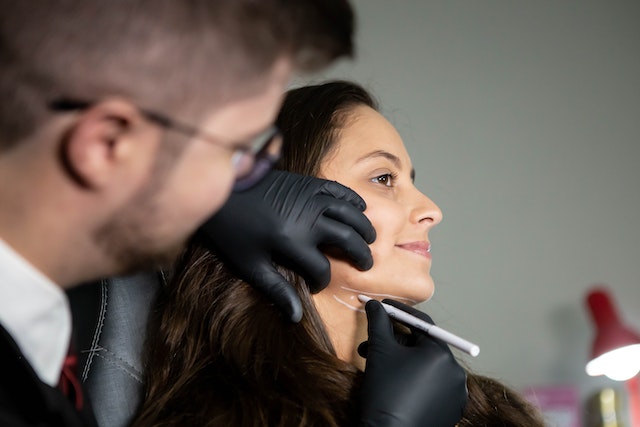Aesthetic plastic surgery is a branch of medicine that focuses on improving someone’s appearance. This includes nonsurgical procedures like Botox and surgical operations like breast augmentation or liposuction.
There are a few things you should know before getting cosmetic surgery. These include:
Know What You Want
Knowing what you want is critical to successful cosmetic surgery. You may have a specific aesthetic goal in mind or want to improve your confidence.
A board-certified plastic surgeon is an excellent place to start, but you should also look at before and after photos of patients with your desired anatomy and structure. This will give you a sense of what your results might look like and help you decide whether or not it’s worth the investment.
Know the Procedure
Before getting aesthetic plastic surgery, you should know what you want. This can help you choose a surgeon with the experience and skill to deliver what you wish and a realistic recovery timeline.
Aesthetic surgery also called cosmetic surgery, includes procedures that enhance or improve one’s physical appearance and symmetry. These include breast augmentation, tummy tuck, liposuction, facelift, rhinoplasty, and eyelid surgery.
Before having a procedure, ask your surgeon for before and after photos of patients who have had the same method you are considering. These photos help you decide if the results look natural and reflect your aesthetic.
Know the Surgeon
A great rapport with your surgeon and surgical team is crucial to a successful aesthetic surgery experience. You want someone who listens to your concerns, respects your preferences and is easy to work with.
Make sure you choose a board-certified plastic surgeon with the proper credentials and experience to perform your procedure. These plastic surgeons Bellevue have been through a rigorous certification process by the American Board of Plastic Surgery, the only board recognized by the American Board of Medical Specialties for plastic surgery.
Know the Cost
Plastic surgery costs can vary significantly, depending on your chosen procedure and the surgeon’s experience. Knowing the price before getting aesthetic surgery will help you make an informed decision about whether or not it is right for you.
Although many cosmetic procedures are not covered by insurance, obtaining a loan from a financing company is possible. This can help you pay for the entire process or a portion of it.
Know the Risks
Cosmetic surgery is not without risk; patients should know this before undergoing any procedure. Fortunately, most complications are minor and can be minimized by following the surgeon’s recommendations.
However, a significant concern with some surgeries is the risk of scarring. Infections are another possible risk.
Cosmetic procedures can also lead to nerve damage or numbness. These results can be debilitating and affect an individual’s ability to make facial expressions.
Know the Recovery Period
One of the most important things to know before getting aesthetic plastic surgery is what it will take to get you back on your feet and look and feel your best. Recovery periods will vary from patient to patient and procedure to procedure, but a well-thought-out plan can make all the difference. Knowing the most effective recovery methods will help you look your best for a special occasion and beyond.
No definitive answer exists for how long it takes to recover from a cosmetic surgery procedure. Still, the average person will require a little over a week of rest post-op to recover and resume everyday life fully.
Know the Results
Looking and feeling your best can significantly impact your quality of life. People who feel good about their appearance are more confident, outgoing and willing to try new things.
Cosmetic surgery can improve your overall quality of life by enhancing your self-esteem and body image. This can be particularly beneficial if you struggle with anxiety or depression, which often decline or disappear after surgery.






